Recycled materials and traditional techniques define this farmstay in India
Inhabitat - Innovation
MAY 15, 2020
Aaranya is an agricultural farmstay that pays homage to the rural vernacular and Mother Nature.
This site uses cookies to improve your experience. By viewing our content, you are accepting the use of cookies. To help us insure we adhere to various privacy regulations, please select your country/region of residence. If you do not select a country we will assume you are from the United States. View our privacy policy and terms of use.

Inhabitat - Innovation
MAY 15, 2020
Aaranya is an agricultural farmstay that pays homage to the rural vernacular and Mother Nature.

CleanTech Group
NOVEMBER 28, 2023
3D printing for automotive manufacturing; copper free motors; and not one, but two marketplaces for recyclable materials– Recent deals worth looking at: Agriculture.
This site is protected by reCAPTCHA and the Google Privacy Policy and Terms of Service apply.

Green Business Bureau
JULY 23, 2020
Some companies might install energy-efficient lighting and allow their employees to have flexible schedules, while others might invest in sustainable sourcing of materials and a cleaner production process. Sustainable Business Practices for the Food and Agriculture Sector. What are Sustainable Business Practices?
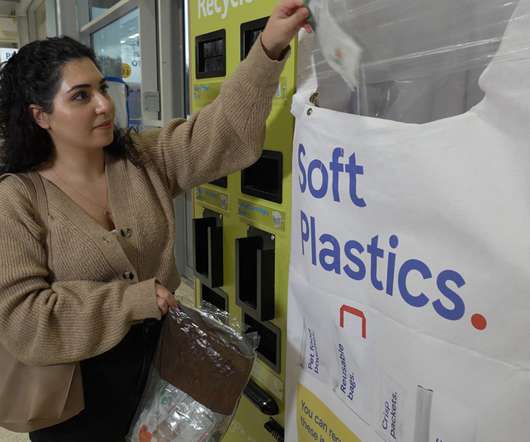
Envirotec Magazine
FEBRUARY 22, 2022
To ensure the liners have suitable strength, the Tesco recycled plastic pellet is blended with recovered agricultural films, such as baling wrap. The combination of the two recycled material sources gives the refuse sacks the required strength and durability, with a high resistance to tearing.

AGreenLiving
MAY 15, 2020
At the edge of the Sasan Gir wildlife sanctuary in Gujarat, India, d6thD design studio has completed Aaranya, an agricultural farmstay that pays homage to the rural vernacular and Mother Nature. Here is the original: Recycled materials and traditional techniques define this farmstay in India.

GreenBiz
MARCH 5, 2021
Creating a circular economy for textiles means shifting to recycled and recyclable materials in order to reduce the amount of land, water and fossil fuels used to produce new clothes. Around 15 million people worldwide work as "waste pickers," salvaging reusable or recyclable materials from garbage.

The Environmental Blog
JANUARY 20, 2022
Ocean acidification is also caused by industry runoff and agricultural runoff, like pesticides and fertilizers, washing into the ocean. For example, buy clothes made from recycled materials. Reducing the use of pesticides and fertilizers in agriculture is also a major step we can take to fight ocean acidification.
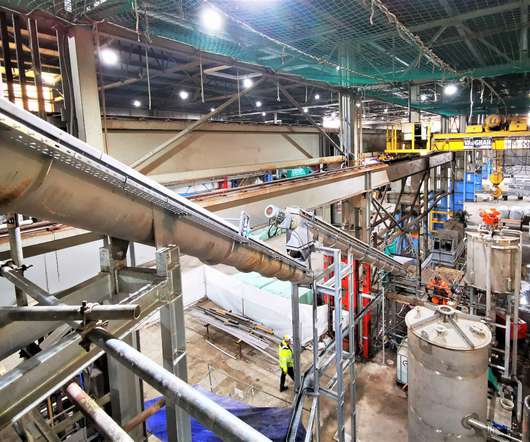
Envirotec Magazine
JUNE 8, 2022
A UK-based demonstration plant that generates industrial biotechnology sugars and other recycled material streams from the paper and card in mixed household waste has come online in May 2022. The products will be used in the production of several high-performance bio-based materials. Imperial College, UK and TCKT, Germany).
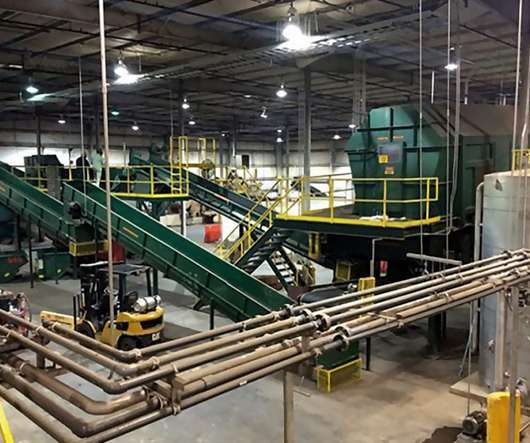
Envirotec Magazine
FEBRUARY 27, 2020
The waste-derived sugar will be used to produce a range of bio-based products for non-food applications in the construction, textile, furnishings and fast-moving consumer goods (FMCG) sectors; reducing reliance on first-generation agricultural sources such as sugar cane or sugar beet. Pulp fibre. Renewable resource.

AFN Sustainable Protein
AUGUST 31, 2022
The food-tech startup, which has raised over $30 million, is on a mission to create “real, guilt-free meat” to tackle one of the world’s biggest climate polluters – industrial agriculture – and to help the world reach its net zero goals.
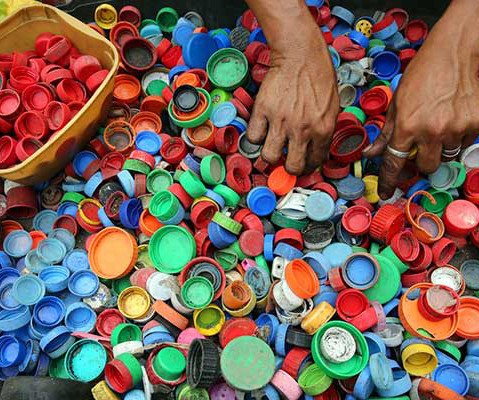
GreenTech Gazette
MARCH 1, 2023
Biological recycling: Biological recycling, also known as biorecycling or biodegradation, is a process that uses microorganisms to break down organic waste into compost or biogas. This technology is particularly useful for food and agricultural waste. This technology is particularly useful for food and agricultural waste.

GreenBiz
DECEMBER 16, 2020
One of our biggest opportunities is regenerative agriculture,” Renne-Malone said. We're really looking at regenerative agriculture as a way to scale opportunities across all our brands, and then possibly partnerships with other industries as we move forward.”. We've looked quite a bit at regenerative agriculture.

Business Green
DECEMBER 9, 2021
The site also uses cladding and insulation made from recycled materials, including sheep's wool and washing machines that would have otherwise gone to landfill. "At Customers also have access to an array of on-site EV charging points.

Green Living Guy
MARCH 1, 2021
It certainly doesn’t require you to establish solar panels on your rooftop, make home furnishings out of recyclable materials, or use refurbished products to help save the planet. Going green is at least not a fancy and big thing nowadays. You can take little steps to conserve nature by changing.
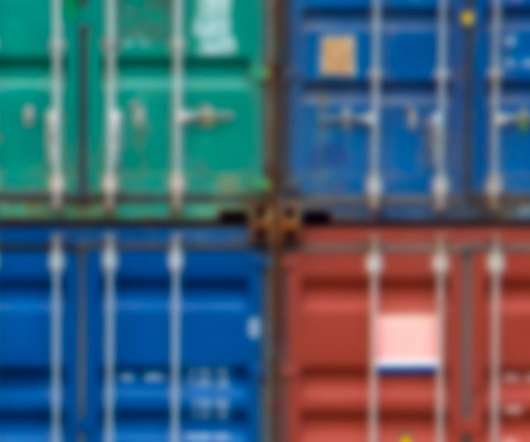
Green Business Bureau
MARCH 24, 2022
AIR PILLOWS MADE OF RECYCLED MATERIALS. This cuts down on the amount of plastic used in their production and transport when compared to other cushioning materials. Once more, they can be reused, recycled, and are even biodegradable. RECYCLED CARDBOARD AND PAPER. Click to Access.
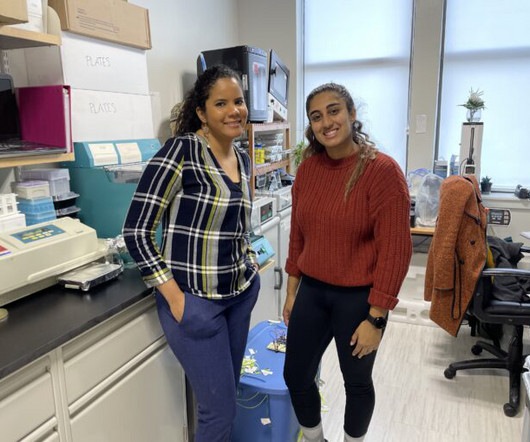
Greentown Labs
MARCH 21, 2023
Agriculture Aquosmic Corporation analyzes bodies of water using satellite images, providing thorough, actionable information on surface-water quality. Buildings frakktal is a B2B materials company developing bio-based polymer processes for the replacement of fossil-fuel-based feedstocks across industries.
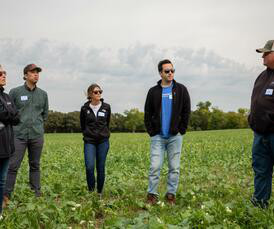
Business Green
MARCH 3, 2023
Today, every leader at General Mills will say that our top three priorities are greenhouse gas reductions, regenerative agriculture and packaging," Melendez shared. We also have a goal to have all of our packaging be recyclable by 2030. How can companies start doing that work? That's been Melendez's experience.

AGreenLiving
FEBRUARY 3, 2020
Incorporating recycled materials into product collections is a good start. See the original post here: How companies can embrace circularity in their material sourcing strategies.

AGreenLiving
SEPTEMBER 16, 2020
The banana silk is made from a byproduct of agriculture waste; discarded banana stems are harvested to make way for new tree growth and then upcycled into this sustainable silk alternative. As an additional sustainability feature, Valani uses recycled materials as well as straw, hemp and jute for its packaging.

AGreenLiving
APRIL 13, 2021
It promotes less monocultures and toxins in agriculture. On-site greenhouses are made with light frames of cross-laminated timber and recycled and/or recyclable materials. Pollinator Park is a 30-minute, virtual experience that is interactive and engaging.

AGreenLiving
APRIL 13, 2021
It promotes less monocultures and toxins in agriculture. On-site greenhouses are made with light frames of cross-laminated timber and recycled and/or recyclable materials. Pollinator Park is a 30-minute, virtual experience that is interactive and engaging.

AGreenLiving
SEPTEMBER 16, 2020
The banana silk is made from a byproduct of agriculture waste; discarded banana stems are harvested to make way for new tree growth and then upcycled into this sustainable silk alternative. As an additional sustainability feature, Valani uses recycled materials as well as straw, hemp and jute for its packaging.

Business Green
MAY 4, 2020
The first assumes rapid decarbonisation of all sectors and would see all major sectors, covering agriculture, industry, transport, buildings, avoided deforestation, and power, abate at least 30 per cent of their 2016-level carbon dioxide emissions by the end of the decade. degree pathways'. As such, the report highlights how any 1.5C

AGreenLiving
MARCH 5, 2021
Creating a circular economy for textiles means shifting to recycled and recyclable materials in order to reduce the amount of land, water and fossil fuels used to produce new clothes. Around 15 million people worldwide work as “waste pickers,” salvaging reusable or recyclable materials from garbage.
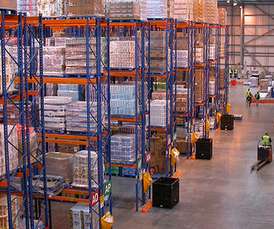
Business Green
MAY 14, 2021
That could mean creating closed-loop systems that increase the amount of recycled materials - a strategy increasingly embraced by electronics companies including Dell Technologies and HP Inc. Or it might mean swapping out one material or component for another entirely, as Unilever is prioritising with its cleaning products.

Business Green
OCTOBER 18, 2021
In the Clean our Air category, New Delhi-based company Takachar won for its technology that can be attached to tractors and converts agricultural waste into fuel or fertilizer to prevent the heavily polluting burning of crop waste. The initiative recovers about 130 tonnes of food a year, equivalent to about 260,000 meals.

Business Green
AUGUST 31, 2022
According to the Food and Agriculture Organisation (FAO) of the United Nations, the prevalence of undernourishment increased 1.5 A good example of this is the work of the Graphene Flagship, a co-ordinated consortium (the biggest of its kind in Europe) aiming to develop sustainable applications for graphene, the world's thinnest material.

Green Business Bureau
FEBRUARY 25, 2022
Global Recycling Day aims to raise awareness about the benefits of recycling along with how to do it properly. Items like plastic bags, shredded paper, wires and broken glass can damage recycling equipment. National Agriculture Day – March 22nd. Next on the list of incredibly important resources is FOOD!

AGreenLiving
JULY 8, 2020
Related: Sustainably sourced sunglasses built to last a lifetime rather than a season Relying on natural materials was important to the DIVAK team, so it selected birch wood, a natural, biodegradable and renewable resource. The company also uses only non-toxic glue and recyclable materials for the other components of the sunglasses.
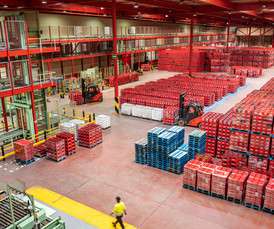
Business Green
JANUARY 21, 2021
Increasing process efficiency and the use of recycled materials, as well as buying more renewable power, provides companies with major climate gains at very low costs.".

Low Impact
SEPTEMBER 1, 2021
We recently blogged about a project : ‘rebuilding a home, and changing the surrounding fields from dead agricultural land into an oasis of natural life’ – as well as building an off-grid electrical and heating system. This has been built from as many recycled materials and components as possible over the last 25 years.
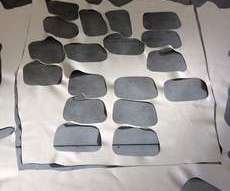
Business Green
JANUARY 31, 2020
The Amazon, for example, is projected by the World Wildlife Foundation to lose one-quarter of its forests by 2030 due to cattle-ranching and agriculture. Material change in action: Gucci, owned by global luxury group Kering, has invested in innovative technologies and processes to sustainably improve its leather manufacturing.

Clean Energy Trust
JANUARY 15, 2020
As such, we are working with exciting technologies involving water, agriculture, bioproducts, recyclable materials, and sustainable proteins, among other innovations. However, with the goal of bettering the environment, we also support innovations that deliver solutions for decarbonization and environmental sustainability.

GreenBiz
JANUARY 11, 2021
It’s throwing $100 million toward biotech solutions for repurposing waste and improving plastics; regenerative agriculture in deforested zones; and building up markets for biological ingredients. billion toward regenerative agriculture into 2025. Beth Ford; President & CEO; Land O’Lakes; Arden Hills, Minnesota. billion U.S.
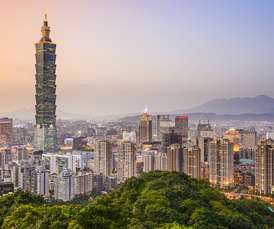
Business Green
AUGUST 5, 2022
Through the funding, WasteAid will pioneer a feasibility study on developing a circular economy alongside The University of Portsmouth and The Department of Agriculture Rural Development Land and Environmental Affairs (DARDLEA), in Mpumalanga, South Africa.

AGreenLiving
DECEMBER 16, 2020
One of our biggest opportunities is regenerative agriculture,” Renne-Malone said. “We’re We’re really looking at regenerative agriculture as a way to scale opportunities across all our brands, and then possibly partnerships with other industries as we move forward.” Following is a transcript of our conversation.
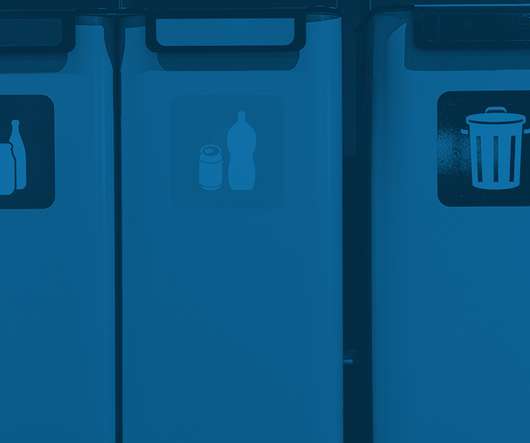
Green Business Bureau
JULY 28, 2022
Below we’ve listed the 7 different types of waste a business can generate, as detailed by the Environmental Protection Agency : Municipal solid waste, Hazardous waste, Industrial non-hazardous waste, Agricultural waste, Medical waste, Oil and gas production waste, Fossil fuel combustion waste. The waste management checklist.

AGreenLiving
DECEMBER 24, 2019
About 80 percent of the materials used in construction were recycled , including the primary maritime shipping containers that make up a majority of the structure. The 2,766-square-foot Hanging House was designed by the architects of Casa Container Marília in the rural area of ??Campos Campos Novos Paulista, Brazil.

Women in Cleantech and Sustainability
NOVEMBER 11, 2021
We are making equity investments into companies building the next generation of essential services and systems that drive the energy transition, offer more sustainable solutions, provide accessible and efficient mobility, greater digital connectivity, agricultural efficiencies, and better health and education. .
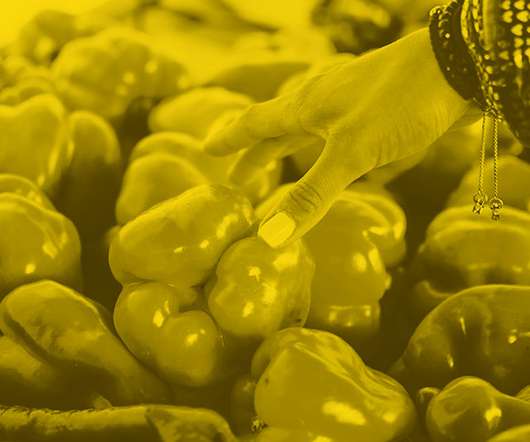
Green Business Bureau
MARCH 16, 2021
To learn more about sustainable sourcing, read our article Sustainable Business Practices for the Food and Agricultural Industries. Use 100% biodegradable, compostable and recyclable materials. Choosing packaging that is 100% biodegradable, compostable and recyclable offers an eco-friendly alternative to landfill.
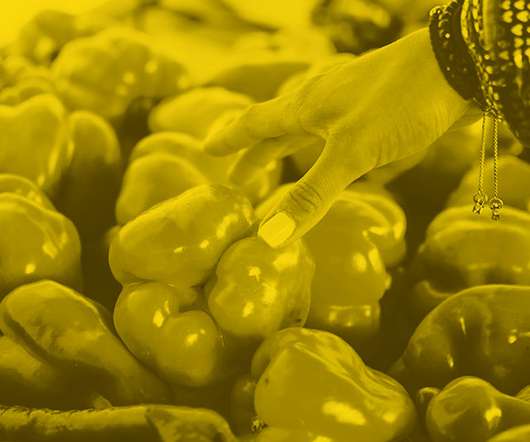
Green Business Bureau
MARCH 16, 2021
To learn more about sustainable sourcing, read our article Sustainable Business Practices for the Food and Agricultural Industries. Use 100% biodegradable, compostable and recyclable materials. Choosing packaging that is 100% biodegradable, compostable and recyclable offers an eco-friendly alternative to landfill.

Green Business Bureau
FEBRUARY 23, 2021
Environment Agency in England and Wales, the Scottish Environment Protection Agency in Scotland and the Department of Agriculture, Environment and Rural Affairs in Northern Ireland. High-polluting businesses are likely to have to register and collaborate with national regulators such as the U.K. In the U.K.,

AGreenLiving
FEBRUARY 24, 2020
Cohen’s first award-winning collection, Worn Again, was developed in 2015 using recycled materials. The collection was inspired by global urban development and the diminution of agriculture by city growth, something Cohen had seen first-hand as the daughter of a farmer.

AGreenLiving
JANUARY 11, 2021
It’s throwing $100 million toward biotech solutions for repurposing waste and improving plastics; regenerative agriculture in deforested zones; and building up markets for biological ingredients. billion toward regenerative agriculture into 2025. In 2019, it followed an inaugural €1 billion bond with a $1.5 billion U.S.
Expert insights. Personalized for you.
We have resent the email to
Are you sure you want to cancel your subscriptions?


Let's personalize your content